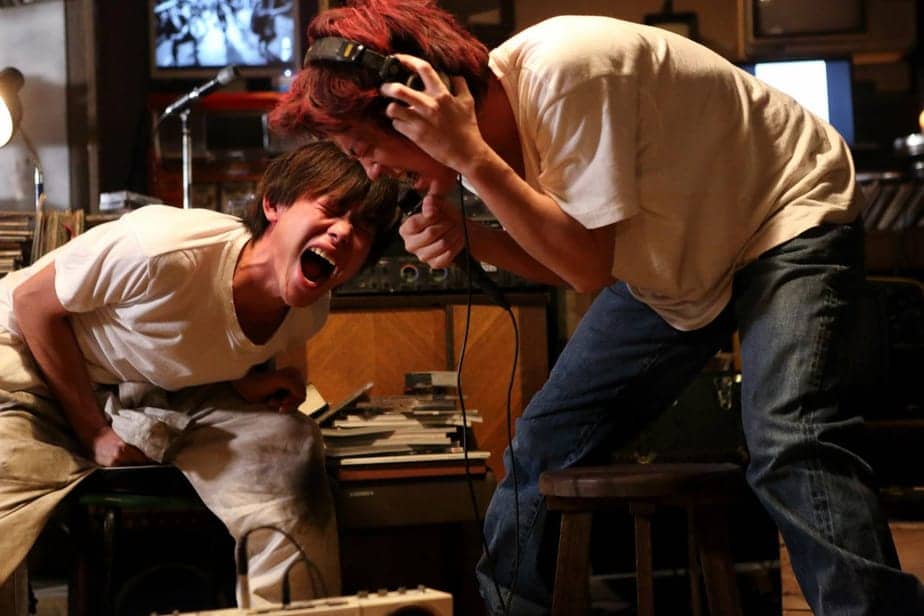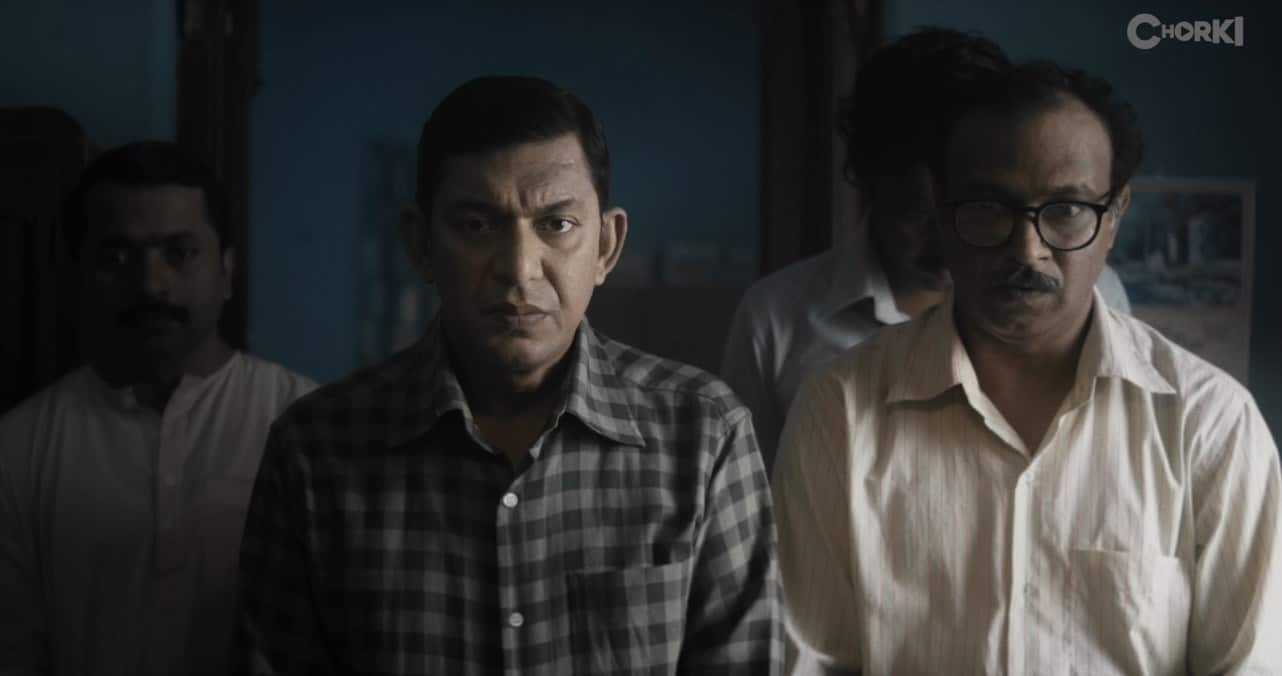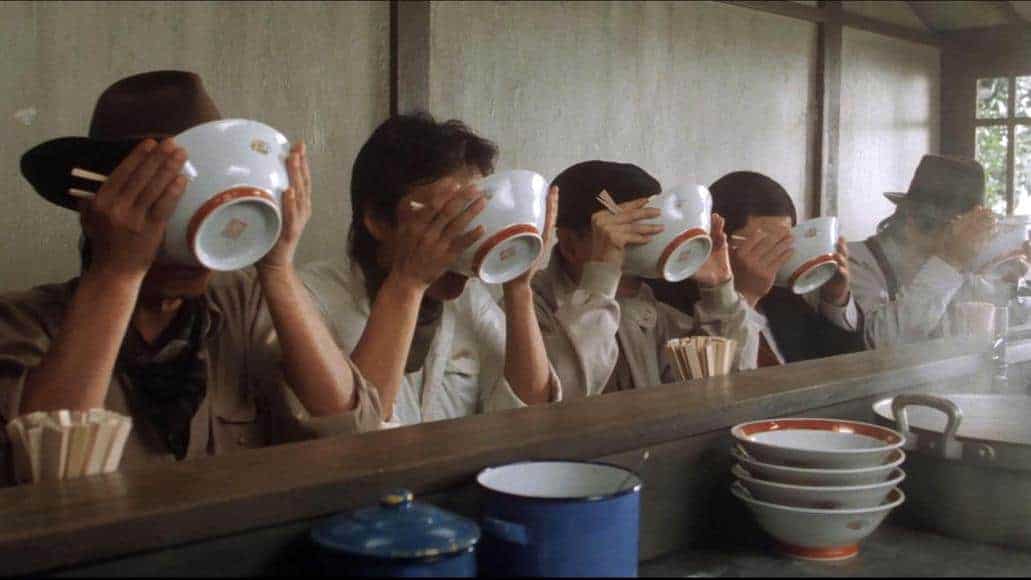Films about various kinds of dystopias have been one of the recent trends of international cinema, although the Japanese have indulged in the genre for decades now, particularly through anime, although live action films have also had their share (“Avalon”, “Himizu”, “Battle Royale” etc). Kenichi Ugana gives a go in the category in his sophomore feature, in a film that left me with mixed feelings. Let us take things from the beginning though.
Good -Bye Silence is available through Article Films
The story takes place in a futuristic Japan, where the “Pleasure Law” prohibiting any kind of entertainment, including novels, movies, and music is in effect. Furthermore, the police punish any who indulge in any kind of entertainment with immediate death, with Sugimura, a particularly violent cop being the enforcer of the police in the city the film takes place.
In this setting, boredom is one of the most common ailments, and the two protagonists, Mizuto and Tokio, who work in a small factory that manufactures screws, are definitely suffering from it. In order to put some excitement in their uneventful lives, they occasionally break into abandoned houses. On one of these “skirmishes”, they discover the house of a man who was killed by Sugimura, due to his indulging in music. The two young men discover music for the first time through the deceased's various equipment (recording devices, vinyls, tapes, videos, musical instruments etc) and the existence of “Son of Noise”, an underground show that still takes place. Tokio in particular becomes obsessed with music, while Hikari, the daughter of the owner of the house, eventually comes to the fore, as Sugimura unleashes a hunt towards everyone involved.
Kenichi Ugana directs and pens a film based on a very interesting idea, a “what if” story about a world were entertainment is banned. His opinion is rather evident, as he creates a setting where boredom dominates and has a particular effect on youths, who, almost inevitable, turn to crime in order to find some excitement. However, this is not a social drama, and the action and exploitation elements soon take over, in a style that reminded me of Takashi Miike, Sogo Ishii and Ryuhei Kitamura's films, although in significantly toned down fashion. Takumi Saito as Sugimura, who acts as a violent caricature, with gusto, chiefly represents this last aspect.
Furthermore, as a fan of extreme music, I much enjoyed the last sequence with the live performances of bands in a true underground venue, despite the fact that their promotion seemed like one of the goals of the film.
The big fault with the movie though, lies with the script, despite the great basic idea and the interesting social comments, which appears quite generic and predictable and, at times, disconnected, as a succession of different episodes rather than a compact one, with the fault extending to Satoshi Uemoto's editing. In this setting, Kaito Yoshimura as Mizuto and Ryuya Wakaba as Tokio do not find many chances to show their talent, something that applies to Sumire who plays Hikari, even more, since her part is rather small.
On the other hand, the production values are quite good with Toshiharu Yaegashi doing a great job in the cinematography, portraying various images that highlight the dystopian setting in grayish tones, in different locations that include the abandoned house, the factory, a lake, and the underground club. The final scene with the blood is definitely the highlight of his effort. Hiroya Shito has done a nice job on the sound with his unexpected splashes of loud sounds that break the permeating silence.
“Good-Bye Silence” seems like the work of a fan (of music, of various directors, of dystopian movies), which faults particularly the narrative; however, the basic idea and its implementation in visual terms show much potential, to the point that I would really like to see where Kenichi Ugana goes after this.

















